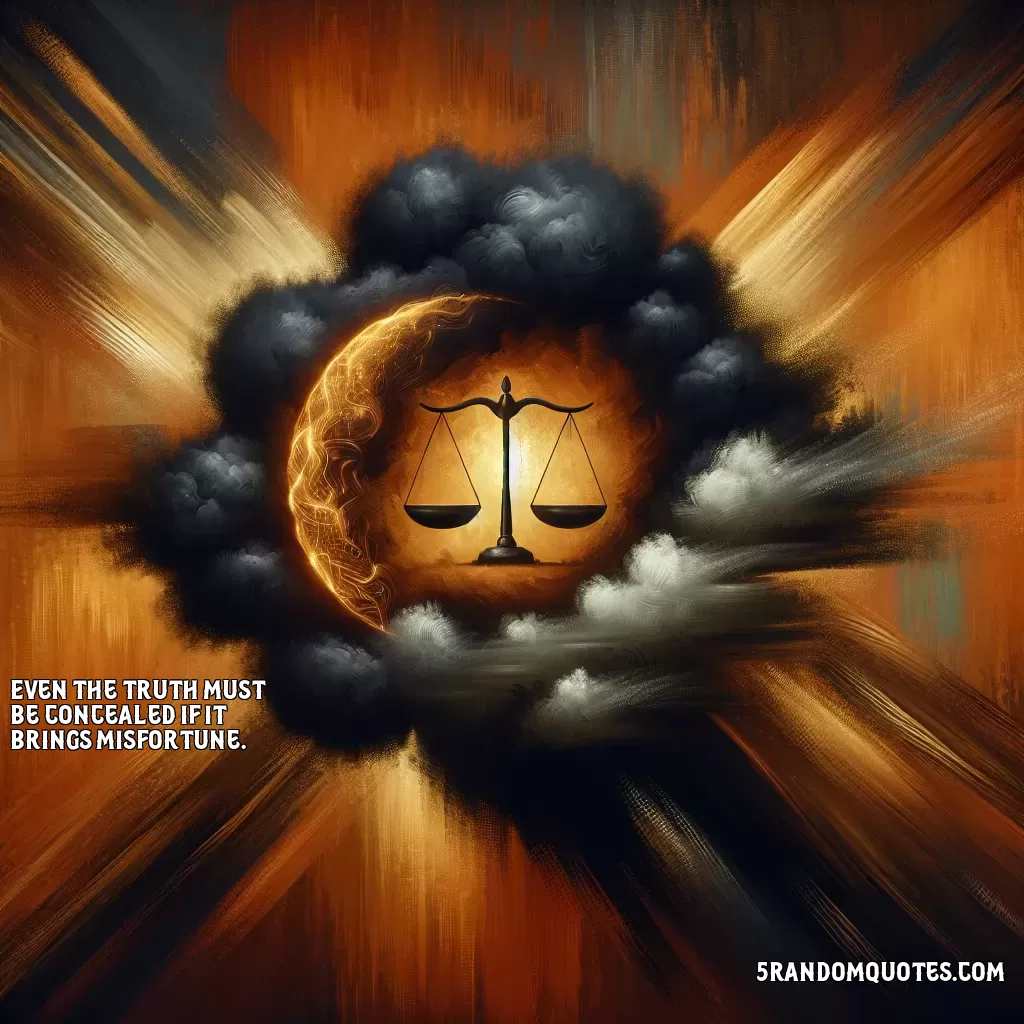
Even the truth must be concealed if it brings misfortune.
Author: Plato
👁️ 15 views
This quote suggests that there are situations in life where revealing the truth may lead to negative consequences or harm, both for oneself and others. It implies that honesty is not always the best policy, especially when the truth could cause pain, suffering, or turmoil. In such cases, withholding the truth or presenting it in a more palatable way becomes a form of protection. This statement encourages us to consider the impact of our words and the potential repercussions of sharing certain truths, emphasizing the importance of empathy and discretion in our communication.
Quote By: Plato
Plato (c. 427-347 BCE) was an ancient Greek philosopher and a student of Socrates, known for founding the Academy in Athens, one of the earliest institutions of higher learning in the Western world. His dialogues, featuring Socratic discussions, explore fundamental concepts such as justice, virtue, and the nature of reality, with his most famous work being "The Republic," which outlines his vision of a just society. Plato's ideas have significantly influenced Western philosophy, political theory, and education throughout the centuries.
Bio added on: 2025-02-17 11:13:44